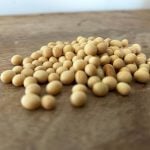Syngenta Canada president Jay Bradshaw says wheat is Canada’s next “Cinderella” crop, but warns that the opportunity could be lost if governments stray from science-based regulations, discouraging private research investment. “My biggest competitors are inside our own global research budget,” Bradshaw told the Western Canadian Wheat Growers convention in Vancouver last week. “We need to



